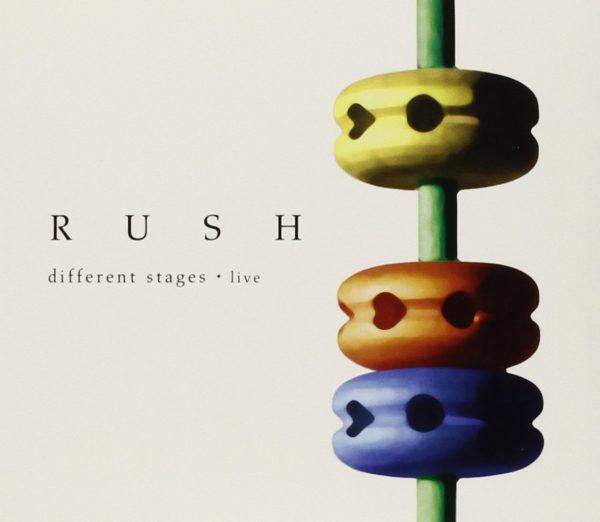[You can learn more about Jonathan here.]
Hum, Inlet : Few things satisfy me more than giving a signal boost to bands I love but who forever reason never got the due they deserved during their lifetime (Jawbox, I’m looking in your direction. BTW, thanks for reuniting in 2009 on the TV show I was booking and see you on the road in 2021!). Hum is definitely one of those bands. A few people still remember them for their ’95 one-hit-wonder “Stars,” but they were dreadfully misclassified at the time as Pumpkins/Nirvana wannabes and in general they remain criminally underappreciated for their heavy/stoner-friendly Midwestern shoegaze vibes. Inlet is their first studio album since 1998, and after 22 years, the band has delivered eight sprawling new songs that thankfully feel and sound like they never left. Here we have big, drop-D riffs galore to inspire some dad-bod headbanging (the aptly named “In the Den”), expansive tracks that morph from Isis-like sludge to reverb-y bliss (“Desert Rambler,” which seems to be about a slow descent into an alien planet) and concise, punchy rockers that flash us right back to “120 Minutes”-era alt-rock (“Step Into You,” “Cloud City”). If you ever tripped out to Failure, Swervedriver or pre-“Bittersweet Symphony”-era Verve, methinks you will love Inlet. Welcome back, fellas.
Bitch Magnet, Bitch Magnet: Continuing on the same tip as above, Bitch Magnet are another crucial missing link in the lineage of 90’s American indie rock, deftly straddling the post-Hüsker Dü underground and the emerging math-y malevolence of Slint, Rodan, Bastro and Shellac. The group only lasted a couple of years (1988-1990), with frontman Sooyoung Park going on to form the beloved Chicago sadcore band Seam. Previously almost impossible to find, Bitch Magnet’s entire catalog was reissued by Temporary Residence Ltd. in 2011 as individual albums as well as on this three-disc set. Maybe I’m not looking in the right places, but I can’t find any current/new rock bands that please my ears quite like this. Favorite jams: the 9-minute slap to the head that is “Dragoon,” the 154 second live wire “Mesentery” (the best Spiderland track that never was?) and the major-key “Motor,” which shares the scruffy energy of early Superchunk.
Kokoroko, Kokoroko: This London-based octet is led by the amazing trumpeter Sheila Maurice-Grey, and its music is the closest thing to Expensive Shit-era Fela Kuti that I’ve heard in a long time. “Adwa” and “Uman” are the kinds of songs I am absolutely desperate to dance to alongside actual other humans in an actual club, their delicious bass-and-drums grooves tickled with perfectly placed horn melodies. But the four songs on this self-titled EP aren’t just about the funk. “Ti-de” is a gentle comedown reminiscent of fellow innovative instrumentalists Khruangbin, while “Abusey Junction” sprinkles in a touch of dub bass and bongo drums for a breezy island feel. Highly recommended for a momentary escape from … well, you know.
Jo Johnson, Weaving: Remember the early ’90s British riot-grrl band Huggy Bear? Good – neither do I. I’ll tell you what is memorable, though: Weaving, the debut album from Huggy Bear guitarist Jo Johnson, which is one of my favorite electronic releases of the past five years. Weaving is informed equally by the hypnotizing minimalism and repetition of 20th century classical pioneers Steve Reich and Arvo Pärt as it is by synth-powered New Age bellwethers such as Tangerine Dream. The result is five uncommonly immersive soundscapes that will stretch your brain in a different way each time you listen. On opener “Ancestral Footsteps,” arpeggiated progressions ping side to side and are slowly overtaken by synth drones and fuzzy mechanized beats. “Music For 18 Musicians”-style phasing propels the 9-minute title track, while the pseudo-dulcimer tones and cheery melody on “Words Came After Music” evoke mid-period Tortoise on a Gamelan odyssey. Chilly vibes turn invitingly warm on “In The Shadow Of The Workhouse,” another lengthy piece which evokes the wonder of deep space and other assorted conundrums of humanity. Closing track “Silver Threads” brings things back to Earth, its formless ambiance suddenly congealing into a sparse but danceable beat that wouldn’t sound out of place in a Plastikman set.
Various Artists, CARE4LIFE: Proceeds from this new 45-track compilation benefit essential and frontline workers from the U.K.’s National Health Service, and the contributors are a who’s who of electronic artists encompassing a welcome breadth of styles and sub-genres. B.Trait’s “Rest” gets things off to a soothing, Eno-ish start, but from there, the BPMs stay consistently peppy. “Workin’” has the kind of smiley, Hot Chip flavor we have come to expect from that group’s Cosby sweater-loving Joe Goddard, Luke Vibert’s “That’s Ill Folks” splatters chopped-and-phased synths atop his signature beats and the ping-pong programming of Maya Jane Cole’s “Keep It Moving” makes me (sort of) miss the Coachella dance tent. A few other highlights: Chris Clark ditching his MacBook for acoustic guitar on the hilarious Syd Barrett sendup “Laptop Stand” (“EasyJet won’t let me take my vinyl on a flight / Fabric booked me all the way from 1 a.m. ’til 5”), the Basement Jaxx boom-bap of Patrick Topping‘s “Totality” and the classic techno of Laura Jones and Karousel’s “No Borders,” which kind of reminds me of Coldcut’s “Plastic Man” without the samples.
Rush, Different Stages: Like most Ohio males growing up in the 1980s, I enjoyed my fair share of Rush (and was subjected to a fair amount of friends wanting to play “Tom Sawyer” for me on their basement drum sets). But my love for the band really only blossomed around the release of this 1998 triple-disc live collection, primarily recorded outside Chicago the year prior. I’m not a huge fan of Test for Echo, the album they were promoting at the time, but I will forever go to the mat for its 1993 predecessor Counterparts, the closest Rush ever sounded to a grunge band. That album’s “Stick It Out” is an absolute beast here; throw Chris Cornell’s vocals on top of the instrumental, and you’d have one hell of a Soundgarden song. The Counterparts instrumental “Leave That Thing Alone” has a nice blend of everything these three guys do best, from Neil Peart’s exotic percussion accents to Geddy Lee’s zig-zag bass melodies to Alex Lifeson’s planetarium light-show guitar solo. I quibble with the omission of “Red Barchetta” and ’80s chestnuts like “Time Stand Still,” but alongside excellent versions of war horses like “YYZ,” “Freewill” and our old pal “Tom Sawyer,” we get the only officially released live performance of the complete “2112” suite. Miss you, Neil.





